Thermophysical Testing

Our Thermophysical Testing Laboratory provides comprehensive capabilities for investigating the physical and thermal properties of materials across an extensive temperature range. With state-of-the-art instrumentation, our lab offers testing conditions that are rarely available at other institutions, enabling us to deliver unique insights into material behavior under diverse thermal environments.
Differential Scanning Calorimetry (DSC)
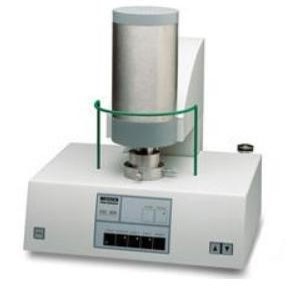
For analysis of phase transformation in materials.
- Supplier & Model: Netzsch/ DSC 404
- Testing methods: Specific heat capacity, phase chage evaluation, heat profile
- Type of materials for testing: all
- Temperature range: RT to 1550C (subzero temeperature is possible)
- Crucibles: Platinium, Al2O3 liner, Al2O3, Graphite
- Oxygen trap system (OTS) is available for oxygen-sensitive materials
Another DSC (Shimadzu DSC50) is available for measuremetns of up to 700C.
Dilatometery
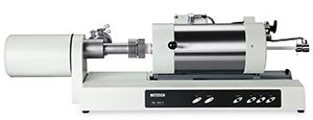
To measure the coefficient of thermal expansion.
- Supplier & Model: Netzsch / DIL 402
- Testing methods: Thermal expansion analysis
- Type of materials for testing: all
- Temperature range: RT to 1550C
- Possible to melt samples in Al2O3 containers
- He or Ar protective atmosphere
Laser Flash Analysis (LFA)
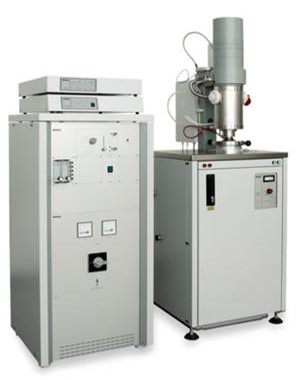
For thermal diffusivity measurements.
- Supplier & Model: Netzsch / LFA 427
- Testing methods: Thermal diffusivity analysis, Specific heat capacity, Thermal conductivity
- Type of materials for testing: all
- Temperature range: RT to 1500C
ThermoMechanical Analysis (TMA)
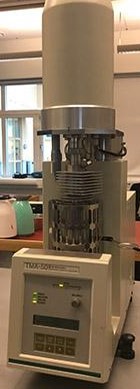
Mainly used for polymeric materials.
- Supplier & Model: Shimadzu / TMA 50
- Testing methods: Thermal expansion analysis
- Temperature range: RT to 1000C
ThermoGravimetric Analysis (TGA)
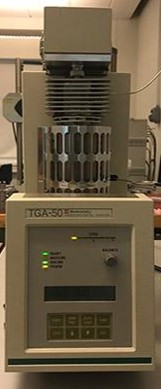
Hot oxidation testing.
- Supplier & Model: Shimadzu / TGA 50
- Type of material for testing: All
- Testing methods: Thermal gravimetric analysis (hot oxidation behavior)
- Temperature range: RT to 1050C
- Samples: max 6 mm in dia, 2-5 mm in height. 20 to 200 mg
Viscosity measurements
With our rotational viscometer we measure the viscosity of high temperature melts, such as molten slag, in a wide temperature range (max. 1650°C) under controlled atmosphere.
We have an X-ray furnace to measure the surface tension and interfacial tension of high temperature melts by the sessile drop method. The measurement can be done under controlled atmosphere and the maximum measurement temperature is 1650°C.
